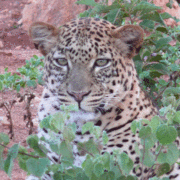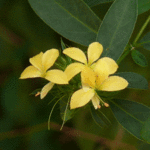Not A Good Time For Little Lizards
 Monday, August 6, 2012 at 02:59PM
Monday, August 6, 2012 at 02:59PM 
Am I the only one who didn’t know that Agama Lizards are cannibals? The other day, I was standing on our balcony when down below I noticed an Agama Lizard battling something large in its mouth. At first glance, I assumed the lizard was trying to eat a super-sized insect of one kind or another, but something didn’t seem quite right about that supposition. A look through the binoculars revealed that the lizard had a caught another lizard and was attempting to eat it! I dashed outside, camera in hand, and this is the scene which transpired before my lens: a large male Agama Lizard (dull in colour without his breeding coat of many colours) in gruesome slow motion devouring a smaller Agama Lizard:


The one that got away! This little Agama Lizard (above), the same size as the victim, watched the proceedings from a safe distance while one of its brethren was slowly and methodically eaten by another, much larger one.





This happening brought to mind a scene I had witnessed a couple of weeks earlier involving another rapacious reptile and its reptilian prey. Somehow this story, though no less violent for the victim, seemed somehow more picturesque to the observer (how shallow I can be!).

This is a Speckled Sand Snake making off with its latest victim, a female Five-lined Skink. We get a lot of these sand snakes in this neck of the woods – they’re long, thin snakes with pretty markings and they’re totally harmless to humans. And as you all know, we have no shortage of skinks here either, which can also go head to head in the beauty stakes with any other reptile you care to mention. This particular snake is a resident here and we often see it hunting outside the house. It’s an expert little predator and lizard eater.


Look at how the blue of the skink’s tail matches the blue of the snake’s scales:

You can see the bulge in the snake’s neck as it swallows the skink whole:

And now for something entirely more gruesome… This morning I found a dead gecko on our balcony, but I was by no means the first to notice it. A colony of ants had already moved in, partially devoured the gecko and was now moving it - and with incredible speed considering the size of the load in comparison to that of the hauliers.

These pictures below (taken within a few short seconds) show the movement of the gecko under carriage of the ants:



And here’s something especially macabre for the boys: a quick close-up look at the eaten-out eye sockets of the hapless gecko…but before we condemn the ants for their brutality, let’s not forget - as with so many stories here at Kulafumbi - what is one creature’s loss turns out to be another’s gain, and I for one wouldn’t want our ants to go hungry. After all, where would we all be without these fastidious insects to clean up after us, carry away detritus and keep our environment clean?






